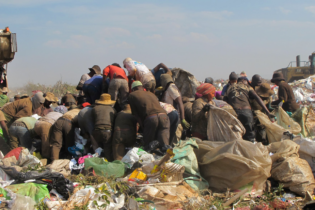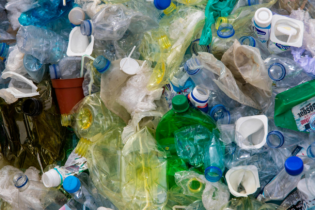The upcoming Clean Power Africa conference to be held in Cape Town in September secured major coup with the internationally renowned renewable energy expert from Germany, Dr Christine Wörlen, to deliver the keynote address. The event’s primary goal is to focus and highlight new opportunities in the clean energy sectors.
These include retrofitting hydropower to current dams, assisting the mining industry to use excess water to provide onsite power as well as applying photovoltaics and concentrated solar thermal power. Wörlen will speak about global best practices on renewable energy integration. She says, “A stable regulatory environment is needed in order to encourage anybody to invest in renewable energy. The ‘wave’ of deployment will be slow in the beginning, as few investors delve into a new technology in a new country right away. On the other hand, there needs to be a regular incremental adjustment of the regulatory framework as technologies develop and become more competitive, and as the integration of increased power output from intermittent technology becomes more complicated and new regulatory detail is required.” She adds that the benefit of renewables is the only energy source that is decreasing in price, getting cheaper all the time. All other energy sources are seeing an upward trend. What is very applicable to South Africa is the challenge of getting started. Wörlen rightly points out that many countries are locked into centralised electricity systems. “Modern renewable energy – and I am not looking at large hydro dams here – is a new industry in almost every country, coming up against the established competition. It requires paradigm changes in power sector planning and operation.” Germany is a success story and has reported astronomical figures of consistent growth in renewables in the past two decades. More than 300 000 jobs were created and earnings focus on the production and sale of solar power to the main grid. In 2012, a quarter of the country’s power was sourced from renewable energy.She explains that there are many developing countries that are great examples as well. This includes Brazil that has been powering its vehicle fleet on sugar cane and in Mexico, it is oftentimes less expensive to purchase solar power for a business than from the government energy supplier. China is successfully growing a solar and wind industry and also increasingly using the technology at home. Even smaller countries like Morocco are now demonstrating commitment and attracting a lot of business in the renewable energy field.
These countries have demonstrated success by understanding that renewables can offer advantages that outweigh the challenges. “Renewables are not only clean but also they are innovative and they help create more jobs than conventional energy. Policy makers in the successful countries understood these advantages and put in place policies to attract the industry and help foster its growth. Also, often they chose rather smart policies. These were focused on the specific objectives that the countries found most important – jobs or energy security or investment, depending on the context. Furthermore, these policies are constantly monitored and adjusted.” Her message for Africa is that the sun in on the continent’s side. South Africa’s Energy Minister Elizabeth Dipuo Peters will welcome delegates at the official networking reception at Clean Power Africa in Cape Town in September which will boast over 600 visitors from across the globe. The event incorporates the fifth edition of the hugely successful Hydropower Africa 2012 conference and exhibition and the second year of Solar Energy Africa. Source: utilityproducts.com





